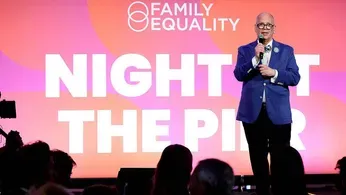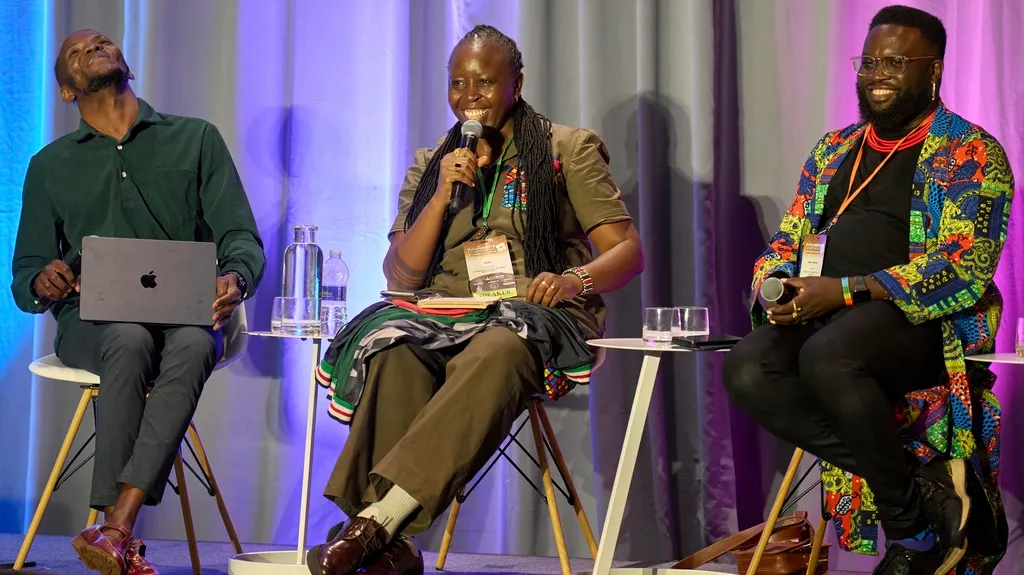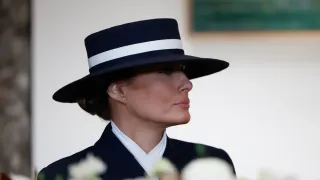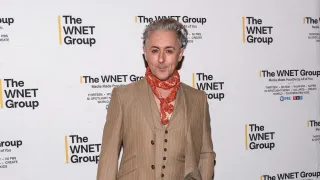
Jun 10
For Jim Obergefell, Protecting Marriage Equality Comes with Keeping Vows to His Husband: 'We Just Wanted to Exist'
Kilian Melloy READ TIME: 4 MIN.
"Yes, I'm worried about marriage equality," Jim Obergefell – the lead plaintiff in Obergefell v. Hodges, the 2015 Supreme Court case that cleared the way for same-sex couples to participate in full legal marriage in all 50 states – told USA Today in a new interview.
Obergefell's ongoing advocacy for marriage equality is a way, he explains, of staying faithful to his late husband. But now he's concerned at how that progress, which benefited hundreds of thousands of same-sex families, is in danger of erasure.
In the interview, Obergefell explained that his unlikely path to being an epoch-changing advocate for the rights of millions of Americans came about for one reason only: The devotion he and his husband, John, shared.
"It's because of John, because we loved each other and we wanted to exist," Obergefell said in the poignant interview, which the newspaper published on June 8.
With the approach of June 26th, which will mark the 10th anniversary of the landmark Supreme Court decision that swept away legal discrimination against same-sex families, the newspaper delved deeply into Obergefell's personal history as a devoted life partner who was galvanized to action when a fatal disease brought the inevitability of loss into his and his husband's life, and a state law seemed poised to erase the depth of their love and commitment.
Obergefell and his husband, John Arthur, got married right after the Court struck down the Defense of Marriage Act in 2013. Arthur was suffering from ALS (also known as Lou Gehrig's Disease), a degenerative condition that robs those afflicted of the ability to move and speak.
"Instead of seeing a few decades more together, we knew our time together was limited to two to five years or less," Obergefell said of John's 2011 diagnosis with the condition.
They lived in Ohio, where marriage rights were denied same-sex families.
"We could have put him in a facility, but we had to think about things that other couples didn't have to think about," Obergefell recollected. "How would he be treated as a gay man in a facility? How would I be treated as his partner of almost 21 years?
"We had nothing legal, no rights and we made the decision: Let's do at-home hospice care because that meant I could keep him safe and comfortable."
When the Court's 2013 decision opened the way for federal recognition of same-sex marriages, the couple flew to Maryland, where the freedom to marry was honored. Friends and relatives "covered the cost of a chartered medical jet," Obergefell related, and the couple were married while still in the jet at the Baltimore-Washington International Airport.
"And I got to take his hand, and we got to say 'I do,'" Obergefell related.
But that was only the beginning of his journey as an advocate.
Less than a week after the couple exchanged thier vows, "A local civil rights attorney read about our story," Obergefell explained, and reached out to clue them in on a looming injustice: John's Ohio-issued death certificate would declare him single despite the wedding.
"John and I knew Ohio wouldn't recognize our marriage," Obergefell recounted. "But that was abstract. That document, knowing that John's last record would be wrong, made that abstract understanding real.
"And it hurt," Obergefell said. "It made us angry."
They decided to do something about it. Obergefell related that, "eight days after we got married, we filed a lawsuit in federal district court suing the governor of Ohio, John Kasich, and the attorney general, Mike DeWine."
They won that suit, with the judge in the case expediting the process due to John's condition. "And then John died three months later to the day," Obergefell added, "but he died a married man."
Their court victory was reversed on appeal, though, and Obergefell had to decide if he wanted to fight on. He did: "If I don't, I'm not living up to my promises to John," he explained to USA Today. "I promised to love, honor and protect him. And if I don't keep fighting this to make sure our marriage can't be erased, then I'm failing in my promises."
Even ten years after the Supreme Court case that carries his name brought LGBTQ+ Americans so much closer to true legal equality, marriage parity remains under threat. Conservative justices have signaled their eagerness to revisit the issue now that the makeup of the Supreme Court bench is so heavily conservative – the same bench that was still recently in place when the Court reversed a half-century of precedent in overturning Roe v. Wade, its own 1973 ruling that found women had a Constitutional right to decide for themselves whether or not to carry a pregnancy to term.
The Respect for Marriage Act, which President Joe Biden signed into law following that reversal, would act as something of a doorstop to a Supreme Court ruling that rolled back the 2025 finding, but it would not preserve marriage equality in every detail.
"If Obergefell is overturned, we go back to a time or a place where a queer couple in Ohio, where I live, might want to get married, but Ohio could refuse to issue a marriage license because Ohio still has a state level Defense of Marriage Act on the books," Obergefell warned.
"Our biggest challenge is making sure we don't lose the progress we have made," the marriage equality advocate added. "We have to be fighting together to make sure every marginalized community keeps the rights that they have gained.
"We can't do this alone. We have to be fighting for every marginalized community, not just ours. And unfortunately, right now, the trans community, they're bearing the brunt of it."
For the moment, though, Obergefell has the satisfaction of knowing that his courage led to change that deeply and significantly benefited literally hundreds of thousands of legally-married same-sex couples.
"When I really feel the the importance of this is every single time someone stops me, hugs me, starts crying, shares photos of their family, of their spouse, of their child, and tells me stories," Obergefell told USA Today. "It's a gift every single time it happens, because I see in their faces what marriage equality meant to them, to their family, to their loved ones."
Kilian Melloy serves as EDGE Media Network's Associate Arts Editor and Staff Contributor. His professional memberships include the National Lesbian & Gay Journalists Association, the Boston Online Film Critics Association, The Gay and Lesbian Entertainment Critics Association, and the Boston Theater Critics Association's Elliot Norton Awards Committee.







